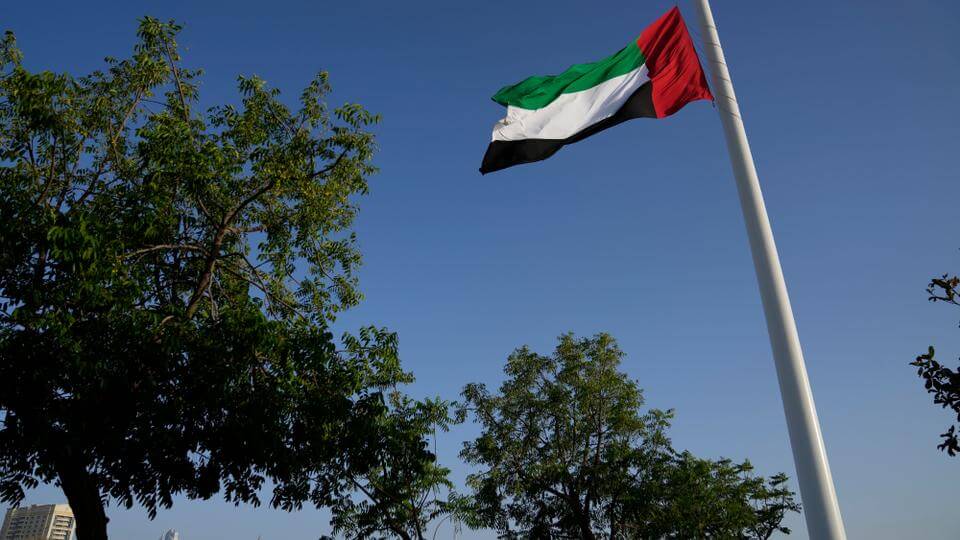The United Arab Emirates (UAE) announced Sunday that its ambassador to Iran has resumed his duties for the first time in six years, making it the second Arab country in a week to reinstate its top envoy to Tehran.
The Emirati foreign ministry stated that the decision is in line with efforts to strengthen relations with Iran and as part of a previous decision to increase diplomatic representation to the rank of ambassador. The ministry said the ambassador to Tehran, Mohammad Al Zaabi, “will resume his duties in the coming days.”
It added that the move is designed to “further advance bilateral relations” and “achieve the common interests of the two countries and the wider region.”
The announcement was made following a phone conversation between Emirati Foreign Minister Sheikh Abdullah bin Zayed Al Nahyan and his Iranian counterpart Hossein Amirabdollahian last month. Both diplomats agreed to improve coordination between their respective ministries.
UAE Ambassador to the Islamic Republic of Iran Resumes his Duties #UAE #Iran @MoFAICUAE pic.twitter.com/9ypShbMw8J
— UAE Forsan (@UAE_Forsan) August 21, 2022
Moreover, the move comes a week after UAE-ally and fellow Gulf Cooperation Council (GCC) member Kuwait announced that it would be reinstating its ambassador to Iran.
Arab states recalled their ambassadors to Iran after the Saudi embassy in Tehran was attacked by Iranian protesters in 2016 after in January that year thousands of Iranian protesters stormed the Saudi embassy in Tehran to protest Riyadh’s execution of a prominent Shia cleric. Protesters ransacked the embassy and set the building on fire with Molotov cocktails and petrol bombs. Protesters also destroyed the Saudi consulate in Mashhad.
Despite Iranian officials condemning the protests, the Arab world reacted furiously to the events and blamed Tehran. Saudi Arabia immediately severed all diplomatic ties with Iran and cut all commercial relations with Tehran. The UAE subsequently broke off ties with Iran in solidarity with Saudi Arabia. Other Saudi allies like Egypt, Bahrain, Kuwait, Jordan, Morocco, Somalia, and Sudan also broke off ties with Iran and recalled their envoys from Tehran.
The #UAE restores full diplomatic relations with #Iran. #Kuwait sent its ambassador back to Tehran recently. #Gulf states downgraded diplomatic ties after #IRGC-linked individuals burned #Saudi missions in #Tehran and #Mashhad. The step is a goodwill gesture to improve relations. https://t.co/NvdCLV9xLG
— Ahmed Quraishi (@_AhmedQuraishi) August 21, 2022
Abu Dhabi and Tehran have also clashed in Yemen, where rival groups backed by both sides have been fighting a deadly war since 2016. Saudi Arabia has led an international coalition, which the UAE is a part of, that has launched airstrikes against the Iran-backed Houthi rebels.
The Houthis have also launched thousands of airstrikes on Saudi Arabia, targeting oilfields and civilian infrastructure. In January, the Iran-backed militants launched a drone attack on an industrial area near Abu Dhabi’s international airport, killing three people and injuring six others. The UAE condemned the attack and vowed to retaliate against the Houthis. Arab countries have accused Iran of supplying drones and ballistic missiles to Houthis.
However, more recently, the UAE has expressed interest in improving ties with Iran. Last month, UAE presidential spokesperson Anwar Gargash said Abu Dhabi intends to pursue a “zero problems” approach with neighbours, including Iran. “The next decade cannot be like the previous decade. It is a decade in which de-escalation should be the key word,” he proclaimed, adding that the UAE planned to reappoint its ambassador to Iran in the near future.

